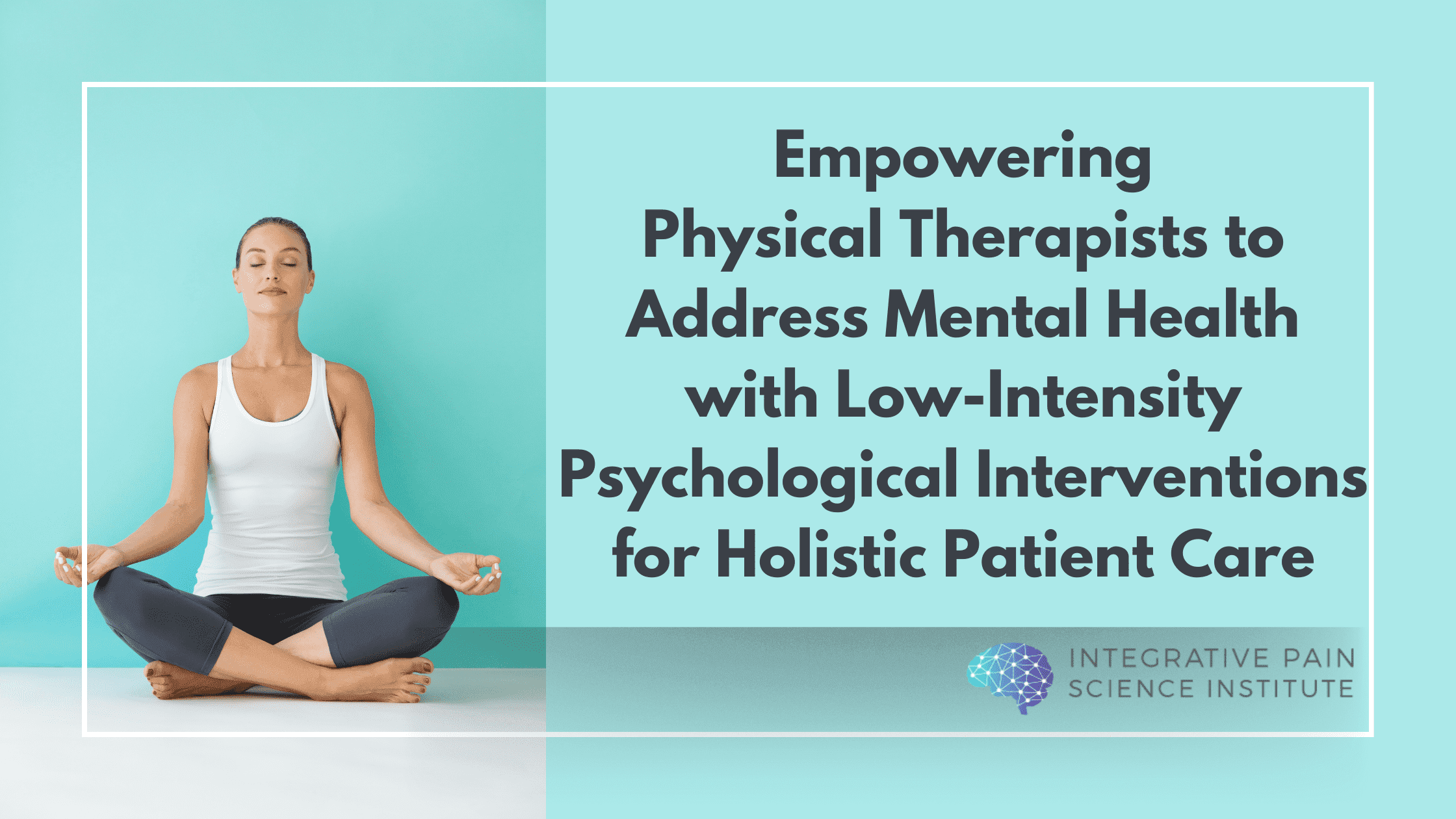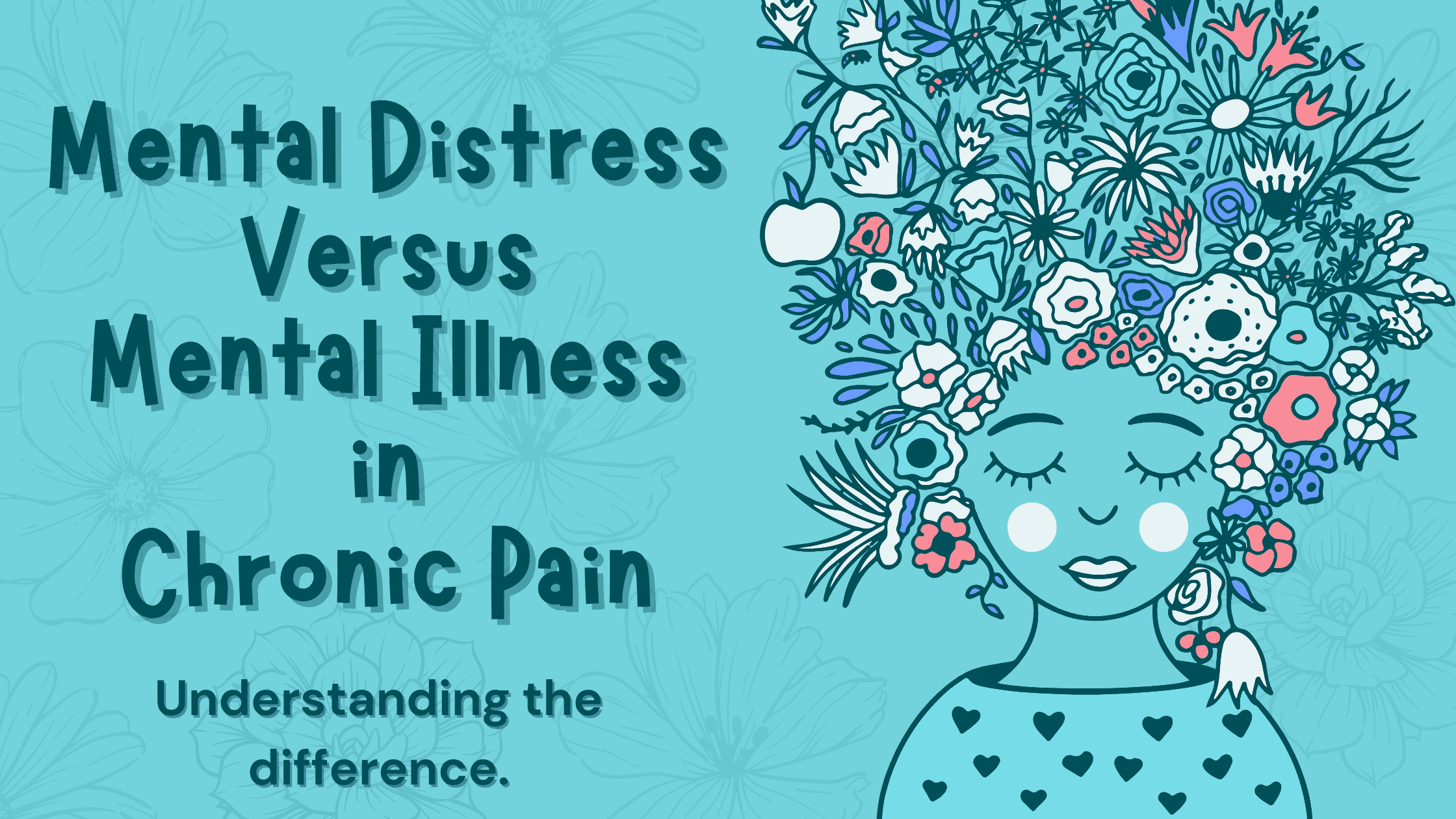Chronic pain can take a huge toll on mental health. Anger, frustration, self-blame, and animosity towards oneself and others often surface in people experiencing persistent pain, making it difficult to manage. Practicing self-compassion (“taking a kind, accepting, and non-judgmental stance towards oneself in times of failure or difficulty”) can make living with pain and responding to its challenges a lot easier (1, 2).
A definition of the three key components of self-compassion, and their importance, can be found in the work of F. Sirois and colleagues “The Role of Self-Compassion in Chronic Illness Care” (3):
- “Self-kindness (versus self-judgment) involves being kind, caring, and nonevaluative stance towards perceived inadequacies, shortcomings, and mistakes, and may be particularly valuable for countering the negative self-evaluations that can accompany not being able to meet one’s expectations due to the restrictions of living with a chronic condition”.
- “Common humanity (versus isolation) refers to the sense of connection to others that arises from acknowledging the common human experience of imperfection and making mistakes, and being more aware that others may face similar challenging circumstances. Framing hardship from this perspective can help people let go of the “why me?” view of their illness which can compromise adjustment, and instead foster a greater connection with others who live with similar conditions”.
- “Mindfulness (versus over identification) refers to taking a balanced and non-judgmental view of emotional experiences, grounding them in the present moment and neither ignoring nor becoming overly embroiled in the negative feelings that accompany painful experiences. This mindful stance may be particularly beneficial for dealing with the ongoing pain and suffering of living with a chronic health condition, and encourage healthier ways of viewing the limitations associated with chronic illness”.
Self‐compassion has been associated with health‐promoting behaviors, physical and emotional health, and higher quality of life in conditions like celiac disease, cancer, inflammatory bowel disease, and arthritis (4, 5, 6, 7). Although a few investigations addressed also the role of self-compassion on chronic pain interference and management, it remains unclear whether self‐compassion on its own may be associated with improved function and psychological well-being in chronic pain patients.
Practicing self-compassion (“taking a kind, accepting, and non-judgmental stance towards oneself in times of failure or difficulty”) can make living with pain and responding to its challenges a lot easier. Click To TweetSelf-Compassion and Chronic Pain
A recent study published in the European Journal of Pain evaluates the association of self-compassion with several domains of functioning in people experiencing chronic pain (8).
A total of 339 treatment‐seeking individuals with chronic pain, who were referred by their primary care providers to a community‐based interdisciplinary pain clinic in Central England participated in the study. Mean age was 52 years old, 71% were women, median pain duration was 7 years, and 50% were not working due to pain. The most common pain site reported was low back (53%), followed by full body pain (13%). The most commonly utilized pain treatments reported by patients were pain medications (86%), followed by physical therapy (65%) and transcutaneous electrical nerve stimulation (TENS; 53%).
Self‐compassion was measured using the 24‐item Self‐Compassion Scale (SCS). It included questions such as, “I am kind to myself when I am experiencing suffering”, “When I see aspects of myself that I don’t like I get down on myself” and “When things are going badly for me, I see the difficulties as part of life that everyone goes through”. Responses were measured on a 5‐point scale from 1 (almost never) to 5 (almost always). Total score was computed, with higher scores indicating higher levels of self‐compassion.
Regression analyses were applied to investigate the association of participants’ self-compassion scores with scores of self-reports that assessed physical and psychosocial disability (Sickness Impact Profile; SIP), depression (British Columbia Major Depression Inventory; BCMDI), pain acceptance (Chronic Pain Acceptance Questionnaire; CPAQ), success in valued activities (Chronic Pain Values Inventory; CPVI), use of traditional and flexible pain coping strategies (Brief Pain Coping Inventory‐2; BPCI-2), and pain anxiety (Pain Anxiety Symptom Scale; PASS).
Results showed that self‐compassion was positively associated with pain acceptance, use of traditional and flexible pain coping strategies, and success in value‐based activities, and negatively associated with physical and psychosocial disability, pain anxiety, and depression severity. Pain acceptance and depression severity were the variables most influenced by self-compassion, which accounted in both cases for ~30% of the observed data variance.
Results showed that self‐compassion was positively associated with pain acceptance, use of traditional and flexible pain coping strategies, and success in value‐based activities, and negatively associated with physical and psychosocial… Click To TweetSelf-Compassion: A Kinder Approach to Living with Chronic Pain
The study conclusions both reflect and expand on previous research showing that self-compassionate people show higher acceptance of pain, greater psychological well-being, tend to see themselves and others in more positive ways, are less burdened by stress, and adjust better to physical limitations. Likewise, the few studies that directly addressed chronic pain suggested that self‐compassion is correlated with higher levels of emotional resilience and positive affect, and lower levels of depression, pain catastrophizing and pain‐related disability (9, 10, 11, 12)
Self-compassion is a key treatment mechanism in mindfulness-based therapies such as Acceptance and Commitment Therapy (ACT) and Mindfulness‐Based Stress Reduction (MBSR) (13, 14). In line with the intended goals of those approaches, the study stresses out that “in the context of chronic pain, self‐compassion does not aim to reduce primary suffering (i.e., physical pain) but rather attempts to reduce secondary suffering (i.e., ineffective responses to pain)” (8, 15).
As research continues to support and validate the long-standing view that self-compassion makes pain more bearable, instilling self-compassion in clients and patients is a desirable goal in physical therapy. The Integrative Pain Science Institute offers a large wealth of information and a new ACT course to improve your practice and increase treatment success for your chronic pain clients.
REFERENCES
1- Neff, K. D. (2003). The development and validation of a scale to measure self-compassion. Self and identity, 2(3), 223-250.
2- Homan, K. J., & Sirois, F. M. (2017). Self-compassion and physical health: Exploring the roles of perceived stress and health-promoting behaviors. Health Psychology Open, 4(2). Article ID 2055102917729542.
3- Sirois, F. M., & Rowse, G. (2016). The role of self-compassion in chronic illness care. Journal of Clinical Outcomes Management, 23(11), 521-527.
4- Sirois, F. M., Kitner, R., & Hirsch, J. K. (2015). Self-compassion, affect, and health-promoting behaviors. Health Psychology, 34(6), 661.
5- Dowd, A. J., & Jung, M. E. (2017). Self‐compassion directly and indirectly predicts dietary adherence and quality of life among adults with celiac disease. Appetite, 113, 293–300.
6- Pinto‐Gouveia, J., Duarte, C., Matos, M., & Fráguas, S. (2014). The protective role of self‐compassion in relation to psychopathology symptoms and quality of life in chronic and in cancer patients. Clinical psychology & psychotherapy, 21(4), 311-323.
7- Sirois, F. M., Molnar, D. S., & Hirsch, J. K. (2015). Self-compassion, stress, and coping in the context of chronic illness. Self and Identity, 14(3), 334-347.
8- Edwards, K. A., Pielech, M., Hickman, J., Ashworth, J., Sowden, G., & Vowles, K. E. (2019). The Relation of Self‐Compassion to Functioning among Adults with Chronic Pain. European Journal of Pain.
9- Carvalho, S. A., Gillanders, D., Palmeira, L., Pinto‐Gouveia, J., & Castilho, P. (2018). Mindfulness, selfcompassion, and depressive symptoms in chronic pain: The role of pain acceptance. Journal of clinical psychology, 74(12), 2094-2106.
10- Costa, J., & Pinto‐Gouveia, J. (2011). Acceptance of pain, self‐compassion and psychopathology: Using the Chronic Pain Acceptance Questionnaire to identify patients’ subgroups. Clinical psychology & psychotherapy, 18(4), 292-302.
11- Purdie, F., & Morley, S. (2016). Compassion and chronic pain. Pain, 157(12), 2625-2627.
12- Wren, A. A., Somers, T. J., Wright, M. A., Goetz, M. C., Leary, M. R., Fras, A. M., … & Keefe, F. J. (2012). Self-compassion in patients with persistent musculoskeletal pain: relationship of self-compassion to adjustment to persistent pain. Journal of pain and symptom management, 43(4), 759-770.
13- Neff, K., & Tirch, D. (2013). Self-compassion and ACT. Mindfulness, acceptance, and positive psychology: The seven foundations of well-being, 78-106.
14- Birnie, K., Speca, M., & Carlson, L. E. (2010). Exploring self‐compassion and empathy in the context of mindfulness‐based stress reduction (MBSR). Stress and Health, 26(5), 359-371.
15- Scott, W., & McCracken, L. M. (2015). Psychological flexibility, acceptance and commitment therapy, and chronic pain. Current Opinion in Psychology, 2, 91-96.




